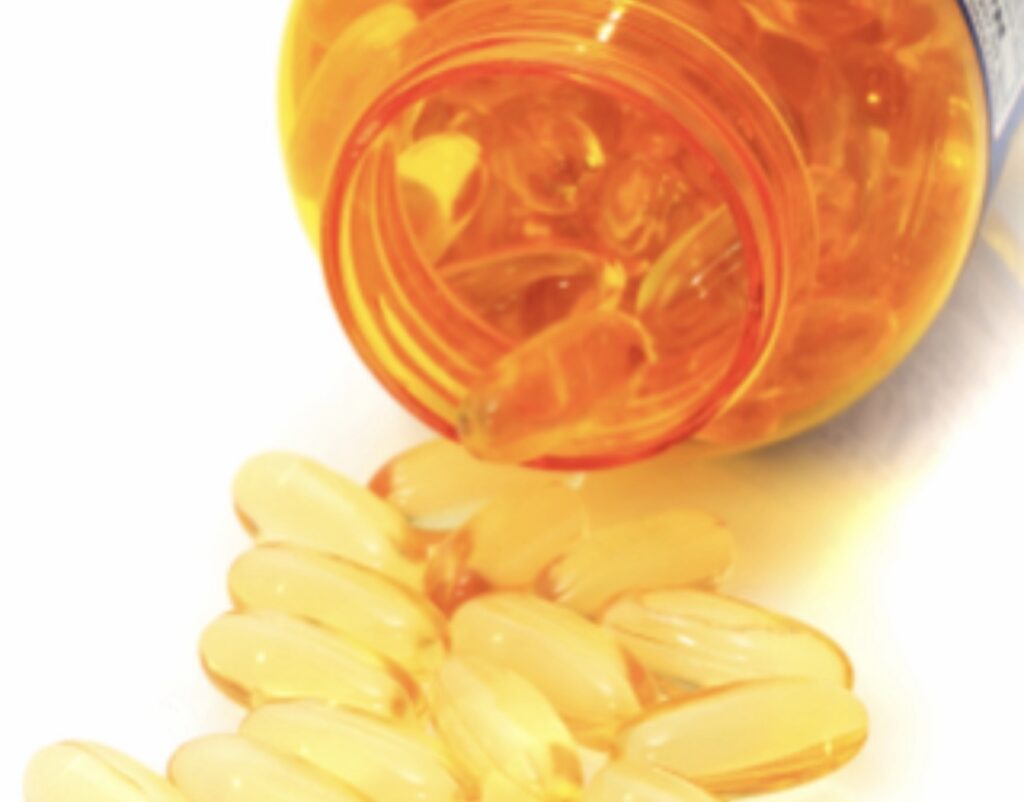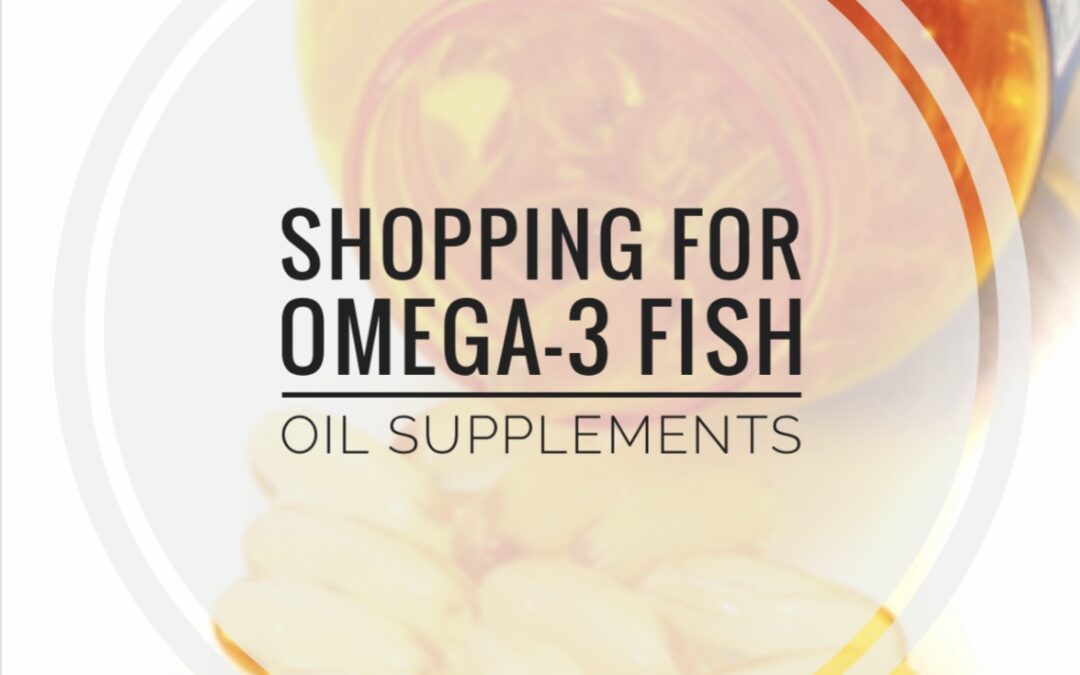If you’re not into fish, fish oil supplements can help you get your omega-3 fatty acids – just be sure to buy a high-quality. Use these guidelines to help you shop.

If you’ve ever gone on search of a fish oil supplement, you may have found yourself overwhelmed. What makes one brand better than another? And, why is the price range for these supplements so large?
To make your experience easier, I put together some guidelines to help. Consider these three things the next time you go shopping for omega-3 fish oil supplements.
The Amount Of EPA & DHA
When shopping for omega-3 supplements, look past the price tag and directly to the supplements facts label. That’s where you’ll learn how much EPA and DHA are in each capsule. A quality fish oil should consist of mostly EPA and DHA.
EPA and DHA are essential fatty acids, meaning they can’t be produced by the body in sufficient quantities. In order to get enough, you have to get them through your diet.
Just because the front says “1000 mg” fish oil tablets, doesn’t mean you get 1,000 mg of EPA and DHA. Many fish oil supplements include other sources as well. The next time you go shopping for fish oils, search for the highest amount EPA & DHA per dollar.
The Source of Fish
Fish oils come from fish, and the type of fish could impact the mercury content of the fish oil. That’s because the smaller the fish used in the fish oils, the less likely the product is to contain any traces of mercury, lead or other heavy metals that can be harmful for your body. Common sources include tuna, salmon, cod, halibut, anchovies, sardines, or a combination of those.
Look for the source of fish on the product labe, in or under the ingredient list. That said, not all companies provide that information. At a minimum, look for a statement on the label that statesthat the product has been purified to remove mercury, PCB’s and dioxins to levels below what’s considered safe. Even better if the purification process is defined.
Check For Third Party Verification
Some, but not all, dietary supplements manufacturers will pay an independeant company to verify the supplement for purity and potency. The U.S. Pharmacopeia (USP) is one such organization. You can look for the USP verification symbol on a supplement to ensure that is has fulfilled the criteria of the certification program. The symbol will indicate that your product contains the amount of ingredients as stated on the label. It also means that it is free of harmful contaminants, will be able to break down and digest easily, and has been manufactured in good practices according to FDA regulations.
NSF International Certified for Sport Program is a program specific to testing products for athletes. They verify that products do not contain unsafe levels of contaminants, substances or masking agents that are prohibited in sports. And, they verify that what is on the label matches what is in the product. Like USP, you can identify their product by the NSF stamp on the label.
These two companies provide third party testing, but they are not the only ones. It’s also important to understand that a dietary supplement that hasn’t been third party tested, isn’t necessary poor quality. It’s an expensive process that some comapnies simple can’t aford. That’s why, it’s up to you to do your homework. Call the dietary supplement company and ask questions. Ask questions on sourcing, manufacturing and production. You have a right to know where your fish oil comes from.
You can get omega-3’s from your diet, but it’s not always enough. If you think you’re falling short, consider taking a high quality fish oil supplement to help.


 Hi, I’m Heather – a registered dietitian, busy mom, consultant, adventure junkie and travel addict who has mastered living healthy on the go. My blog is where I share simple recipes and healthy living tips to help and inspire others to live their best life.
Hi, I’m Heather – a registered dietitian, busy mom, consultant, adventure junkie and travel addict who has mastered living healthy on the go. My blog is where I share simple recipes and healthy living tips to help and inspire others to live their best life.